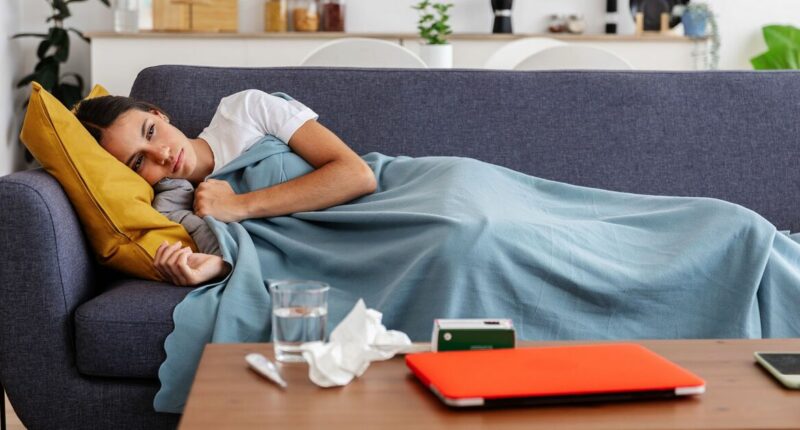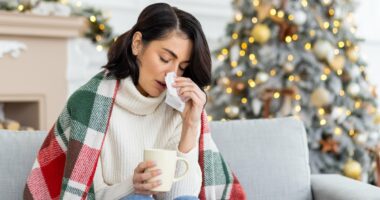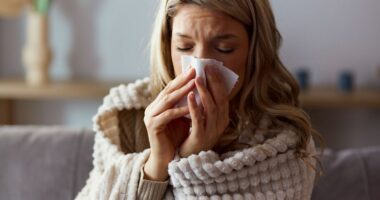Share this @internewscast.com
A recent survey has uncovered that Gen Z, individuals aged 18 to 28, are more inclined to prioritize self-care when they feel unwell, unlike Baby Boomers who are more likely to continue their routine. As the season of colds and flu approaches, this research involving 2,000 adults shows a distinct generational split in how people in the UK handle illness.
More than half of Gen Z respondents, 55%, are comfortable with taking sick leave to recover, whereas only 30% of Baby Boomers, who are between 61 and 79 years old, would do the same. This suggests that many Boomers still embrace the traditional “keep calm and carry on” attitude, opting to work through their illness instead of allowing time for recovery.
Younger people are also more likely to pause social activities, exercise, and house chores, with 83% of Gen Z agreeing that taking it easy can actually help them bounce back quicker.
Conversely, Baby Boomers typically manage illness by using over-the-counter medications, eating healthy meals, and ensuring they get some rest in bed.
For Gen Z, self-care involves enjoying small comforts to make feeling unwell less miserable, like taking a warm bath, watching a favorite TV show or movie, and allowing themselves to rest.
Yet, four in ten Boomers confessed they’d rather power through at work than take time off to recover.
Nearly half of the Baby Boomers surveyed confessed they feel guilty about taking time off work to care for themselves, and almost a quarter are concerned about being judged by their managers for doing so.
Despite this, a significant 30% of working adults confessed they don’t prioritise self-care enough.
Dr Roger Henderson, NHS GP and spokesperson for Olbas, which commissioned the research, said: “Many people and families are now taking a gentler approach to ‘sick days’, with more focus on rest and simple comforts rather than just ‘pushing through’.
“Recovery is now seen as a chance to support both body and mind, with good sleep, hydration and calm activities all helping along the way.
“Small rituals can make a big difference too, such as steam inhalation, natural decongestants, warm baths or even propping up pillows at night can ease symptoms and bring comfort.
“These little moments of care not only help us feel better but also give peace of mind for caregivers during cold and flu season.”
However, attitudes may be shifting as a third of all respondents predicted there will be a change in future, with more people prioritising self-care. And 40% believe workplaces will adapt further, offering more remote working and flexible hours to accommodate employees who are unwell.
Rachel Ramsden, spokesperson for Olbas, commented: “Self-care was perhaps once thought of as indulgent, but it’s now a necessity for many people.
“Being comfortable to rest and recover, embracing your personal ritual for periods of illness and having a support system in place that allows this is essential.
“A lot has happened in recent years, which has impacted how we care for ourselves and general attitudes towards cold and flu recovery.
“With winter approaching, it’s important that people recognise the signs of illness and know how they can help themselves recover as quickly as possible – whether that is through self-care, natural medication or visiting their local pharmacy for more advice.”















